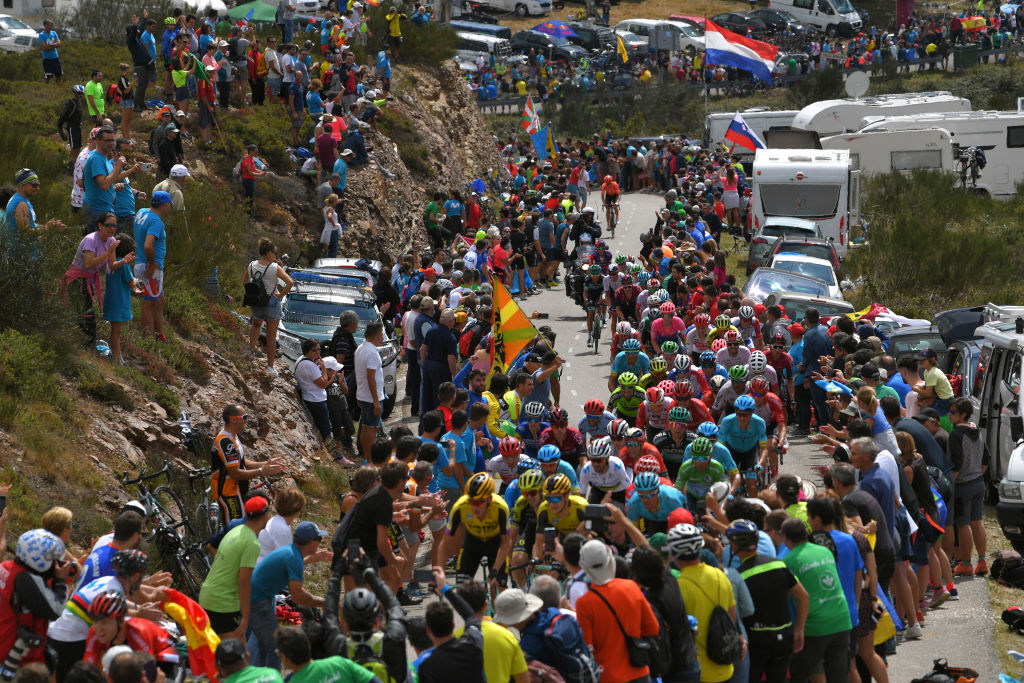Vuelta a España: Fans banned from Basque climbs
Basque government rules climbs on stages 1 and 7 will be 'behind closed doors'

Certain climbs at the Vuelta a España will take place 'behind closed doors', with fans to be banned from two Basque country mountains in the first week and possibly more later in the race.
Race organisers announced on Tuesday that the Alto de Arrate, which appears late on stage 1, and the Puerto de Orduña, which is used twice on stage 7, will be closed off to spectators due to the ongoing COVID-19 pandemic.
"The Basque government believes that the current epidemiological situation does not offer the appropriate conditions to contemplate allowing the public to attend," read a statement.
"The topograghpy of both mountains would create enormous difficulties in controlling social distancing, which, in contrast, can be enforced in other locations with strict protocols and limits on numbers."
Spanish health guidelines currently state that there can be no mass gatherings of more than 1,000 people, and that people should wear masks and keep 1.5 metres apart. The Vuelta organisers must ensure these conditions are met along the whole route but do not feel it's possible on those particular climbs.
The 2020 Vuelta a España, which has been shortened to 18 stages, begins in the Basque Country on October 20. The 173km opening stage takes in three categorised climbs before the first-category Alto de Arrate, which tops out 2.5km from the line and signals an immediate test for the overall contenders.
The race then heads into Navarre, down to Castile y León, and east into Aragón, before the first week ends on stage 6 over the French border, on the Col du Tourmalet in the Pyrenees.
Get The Leadout Newsletter
The latest race content, interviews, features, reviews and expert buying guides, direct to your inbox!
On the rest day, the race transfers back to the Basque Country, where the second week begins with stage 7 from Vitoria-Gasteiz to Villanueva de Valdegovia. The 159.7km stage tackles the Puerto de Orduña twice, first after 60km then later in the stage, with the summit 20km from the finish.
There could be further restrictions put in place for stages later in the race, as it heads across the north of Spain before dropping down to Salamanca and across for the finale in Madrid on November 8.
"We are carrying out meticulous work alongside the relevant authorities in each autonomous community in order to establish specific measures for each of the 18 stages that make up the route for the 75th edition, as well as for the mountain climbs during or at the end of stages," read the statement.
"We will communicate as soon as possible those points that will be restricted from the public for health reasons."
Patrick is a freelance sports writer and editor. He’s an NCTJ-accredited journalist with a bachelor’s degree in modern languages (French and Spanish). Patrick worked full-time at Cyclingnews for eight years between 2015 and 2023, latterly as Deputy Editor.
